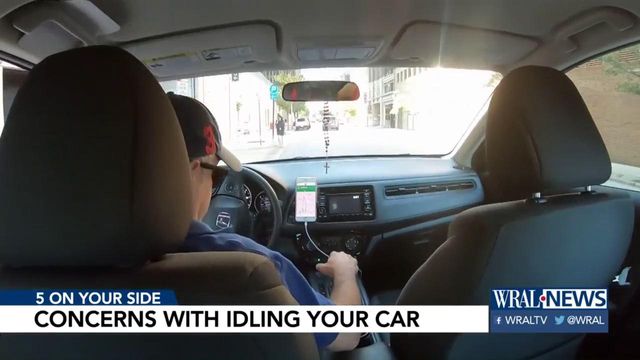5 On Your Side: Idling cars harm environment, health
It might seem harmless, but idling is actually bad for the environment, your health and your wallet.
Posted — UpdatedThere are multiple ways to end up idling your car without even thinking about it.
It might seem harmless, but idling is actually bad for the environment, your health and your wallet.
Running through a drive-thu or waiting to pick someone up, you likely sit with your car running.
Consumer Reports says you should resist the urge to idle.
Idling contributes to global warming and is linked to asthma, decreased lung function, cardiac disease and cancer.
One minute of idling puts more carbon monoxide in the air than smoking three packs of cigarettes.
Across the country, 29 states and the District of Columbia all have laws regulating idling.
Restrictions in North Carolina impact heavy-duty vehicles.
Consumer Reports’ auto experts say there’s no good reason to keep a car running when it’s not moving.
“When you start the car, you want to give it a little bit of time, say 30 seconds, to build a little heat into the engine, get the fluids rolling,” Jeff Bartlett said. “That’s really about as much time as most people take to get settled and to buckle up.”
“When you come to a stop for ten seconds or more, it’ll shut the engine off to save that fuel,” Bartlett said. “That saves you money at the same time.”
Consumer Reports cautions, though, that drivers shouldn’t try to mimic the shut-off feature on an older car by manually turning off the engine at, say, a stop light.
Older cars are not designed to turn on and off so frequently.
Related Topics
• Credits
Copyright 2024 by Capitol Broadcasting Company. All rights reserved. This material may not be published, broadcast, rewritten or redistributed.






